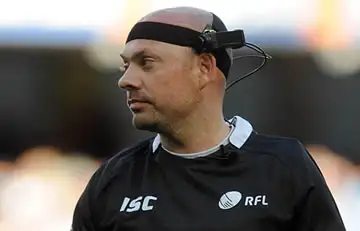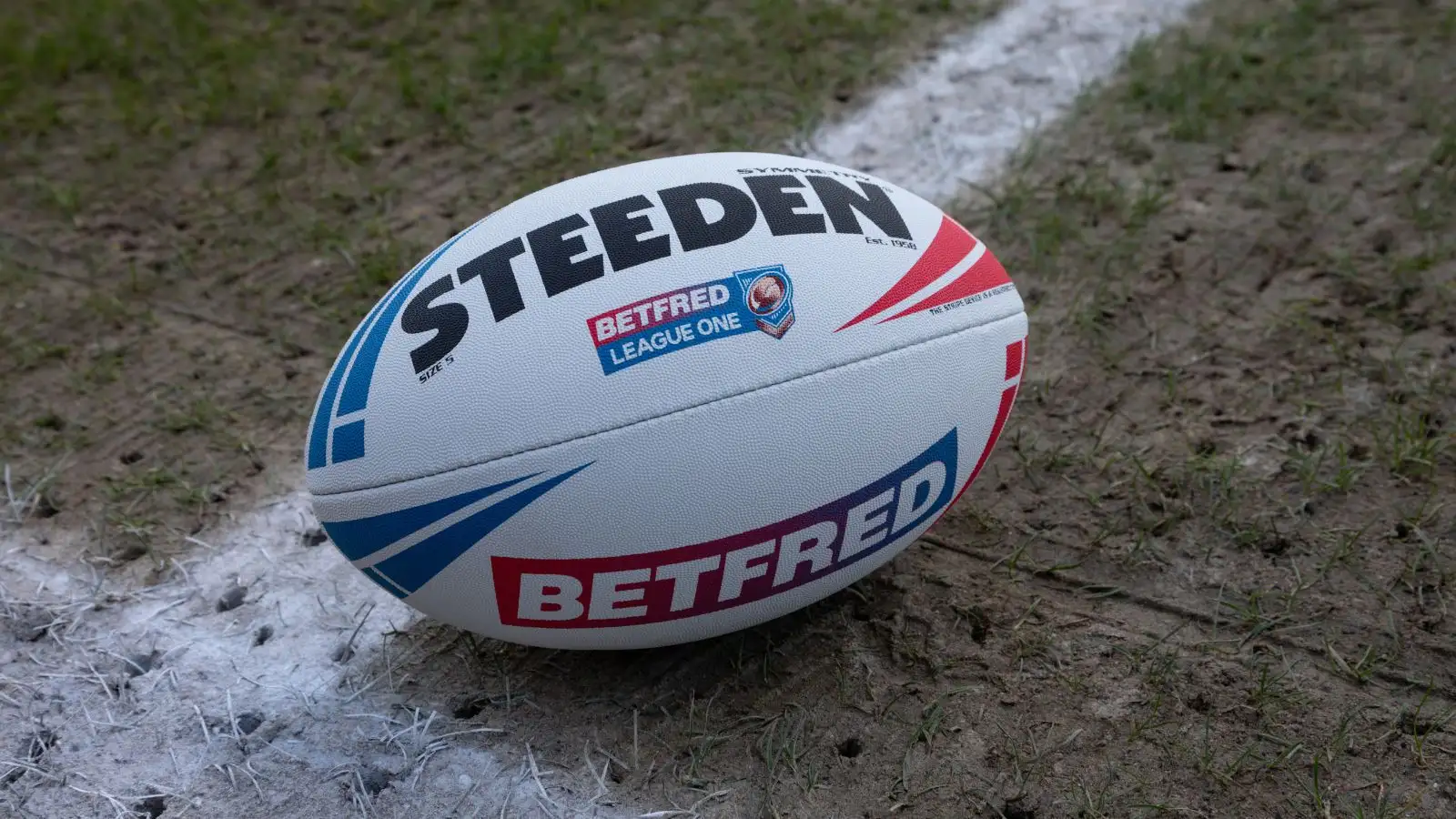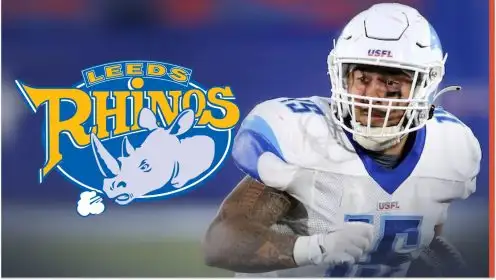Rugby League Week #6 – Rules are rules

I got into a bit of a Twitter spat last weekend, as you do.
It was over Phil Bentham’s contentious decision to penalise Morgan Escare for playing on when tackled in the dying moments of Catalans’ clash with Salford in Perpignan.
Most, if by no means all, of those who supported the call were – surprise, surprise – fans of the Red Devils. And why wouldn’t they back it, given that the subsequent two points earned their favourites a draw; ‘earned’ the correct word after such a turbo-charged affair to which both sides contributed hugely.
I also have sympathy with the view that it’s a shame to focus on the referee after such an enjoyably zany match, in which any number of factors may or did have an impact on its eventual outcome. Rugby league is indeed obsessed by its men in the middle (and those running touch), often to the detriment of the people who really matter: the players.
In the immediate aftermath, for example, ‘Phil Bentham’ was trending on Twitter, not Morgan Escare or Tommy Lee.
But then again, professional sport is a branch of the entertainment industry, isn’t it? So we shouldn’t be too surprised, perhaps, when a controversy at the end sticks, in much the same way as the bit we remember about a thrilling film or play might be its unexpected final twist.
As to the incident itself, if you haven’t seen it already, it’s widely available online. With under two minutes left, Lee tries to tackle the Dragons’ winger around ten metres out from the defender’s own line, just to the side of the posts. Escare is brought down in the collision, though Lee never really has a grip on him. Realising this, or deciding to waste time depending upon your point of view, the Frenchman regains his feet and takes the ball on. Peep!
It’s at this stage when everyone, including by the look of it the players of both sides and certainly the TV commentators, former refs’ boss Stuart Cummings among them, expects the youngster to be told to go back and play the ball again. Bentham’s mic clearly picks up him saying that he had called ‘held’ and such restarts have been customary since ‘the rule’ was changed in 2013.
To that extent, what really matters here is not so much whether Escare was in fact tackled, I remain convinced he wasn’t, but whether a penalty for this ‘transgression’ was justified by the rulebook. But to the original point first…
One of those Twitter correspondents, Salford fan Mike Dixon, put it thus: ‘Referees only [call] held if the tackle is upright (player standing up). If it’s on the floor and the ball-carrying arm of the attacking player hits the ground with contact by the tackling player then it’s a tackle. End of debate.’
Which seems as good a place to continue a debate as any.
Mike’s response was by no means the only one couched in such terms, confident in its assertions to the extent that it made be momentarily doubt myself, though Bentham DID call held. He said so himself.
Elsewhere online too, there were references to players needing only to be touched while on the ground for a tackle to be complete. To which any thinking person would be bound to respond: touched by what exactly? The hands or fingertips, presumably, though when we say ‘touched’ are we in fact limited to those appendages? How about head, shoulders, knees or toes?
And have we really reached a stage in rugby league where attackers no longer have to be physically secured? Is it now enough merely to brush them with a hand or ankle or forearm or John Thomas? And if so, isn’t that, well, just touch and pass (an accusation levelled at the majority of this particular match by not a few observers, but we’ll let that one go).
So anyway, I did what all right-minded folk would do in such circumstances – and, no, I don’t mean spend hours sounding off on social media in any case, refusing to acknowledge that tribal loyalties might just be clouding my judgement a little – I tried to find an up-to-date rulebook.
Tricky. And to begin with, I had no luck whatsoever. A ‘Know The Game’ softback came to light from 2004, but that was no use, was it? I was still searching when current head of match officials Jon Sharp came out in support of his man, echoing the point about Escare not being vertical and so, therefore, losing the right to go back and have another bash, as has been the case for the past season and a bit (from my own admittedly dodgy memory) in every other such instance.
This rule interpretation was, again, news to me, yet plenty of folk online seemed to know of it already so maybe I’d just lost track of all the changes that seem to be made on annual basis – different ones at that according to whether you are playing and watching in the northern or southern hemisphere. The up-to-date rulebook, once I found it, would clear everything up for sure.
It would have to do, wouldn’t it? For surely no major professional sport would just make up its on-field rules and regulations on the hoof. Surely, the rules could not just be what any given referees’ controller said they were at any given time, could they? A scenario in which everyone just mutely accepted their finer points verbatim, rugby league’s very own version of Stockholm Syndrome?
No, no, of course not. It would all be written down somewhere. To be found in an easily accessible place, available both to the paying punters and we who are lucky enough to write about or broadcast rugby league, so that we can all of us get our facts right. A place where former referees’ controllers like Stuart Cummings might happen across it too, for instance.
Well, in the end and after a fair bit of struggle, just such a rulebook did drop into my enthusiastic grasp, though on reflection I could probably have just tickled it. And there, in section 11, ‘Tackle and Play the Ball’, were some intriguing definitions re what constitutes a tackle:
11.2. A player in possession is tackled:
a) When he is held by one or more opposing players and the ball or the hand or arm holding the ball comes into contact with the ground (grounded).
b) When he is held by one or more opposing players in such a manner that he can make no further progress and cannot part with the ball (upright).
c) When, being held by an opponent, the tackled player makes it evident that he has succumbed to the tackle and wishes to be released in order to play the ball (succumbing).
d) When he is lying on the ground and an opponent places a hand on him. (hand on player already grounded*). *Note: ‘already’ grounded.
To be clear, I wouldn’t be a referee for all the crumbs on Nigel Wood’s office carpet. They do an astonishing job in very testing circumstances, making instantaneous decisions on the fly (though this particular one did seem to take a while, for some reason). And though I believe the key word in the above official definitions to be ‘held’ (nowhere does it say ‘touched’), I do accept that when Escare hit the turf in Perpignan last Saturday there were certainly elements of doubt and debate regarding whether or not he was actually tackled.
And I certainly would not blame Phil Bentham for taking the view, from his own position some ten metres away, that Lee’s tackle on the winger had indeed been concluded, though helped by video replays I would disagree with it. Lee did look to be laid on Escare’s ankles, though he never pinned him down.
Nor do I have any axe to grind with Salford. Far from it. I desire nothing but the best for both the Red Devils and Dragons, two very important, nay vital, clubs in the grand scheme of things. A draw was a handy result.
Mistakes are made, that’s how it has been, is and always will be. But a sport that doesn’t face up to its responsibility for open and frank explanation afterwards, with an accompanying apology when necessary and up-to-date rules that are not only written down but published, really cannot complain when it isn’t taken seriously. This individual incident will soon fall from memory. But the principle should not be allowed to. All else is amateur hour.
In the rulebook, there is also a particularly intriguing clause re what constitutes a ‘broken tackle’, which Escare may well have instinctively had in mind when he regained his feet, unhindered, and played on – not being mind-readers like Mr Bentham and his online backers, I guess we’ll never know:
Broken tackle: ‘Where the player is brought to the ground, a tackle is not effective if the hold on the player in possession is broken before he is grounded. Before allowing play to proceed, Referees should be sure in their own minds that the tackle was indeed broken otherwise the tackler who, playing in the true spirit of the game, releases the tackled player immediately he is brought to the ground, may be unfairly penalised.’
It seems fair to say that this last bit must have been Phil Bentham’s interpretation in the final minute of Catalans Dragons v Salford Red Devils on Saturday 7 March 2015. Sadly, though, there is no word on the correct way to restart play in such circumstances today, given that this most ‘up-to-date’ rulebook seems to have been published in 2012. Handy that, isn’t it?
Tone’s Tips: Victories for Huddersfield, Warrington, Wigan, Widnes, Salford and Catalans. Kevin Locke unveiled as participant on ‘Strictly Come Dancing’.



